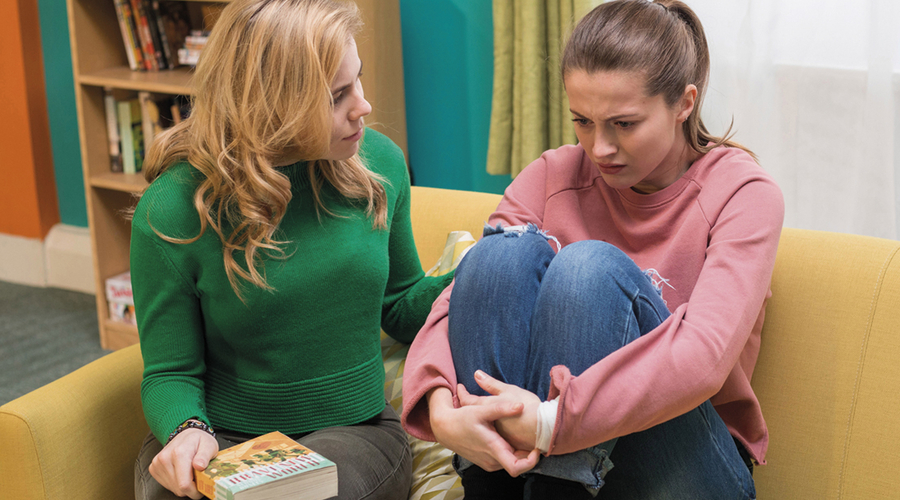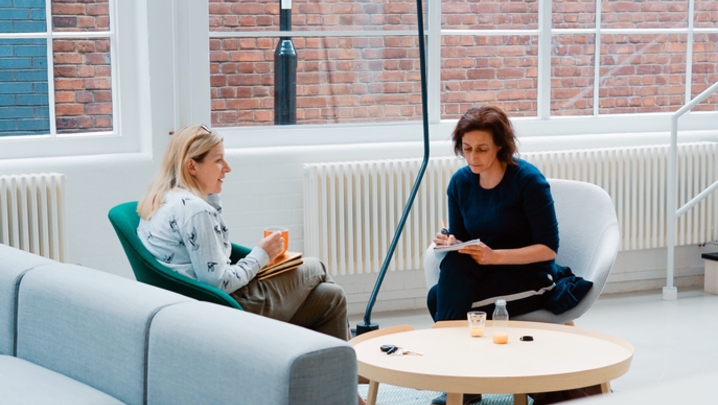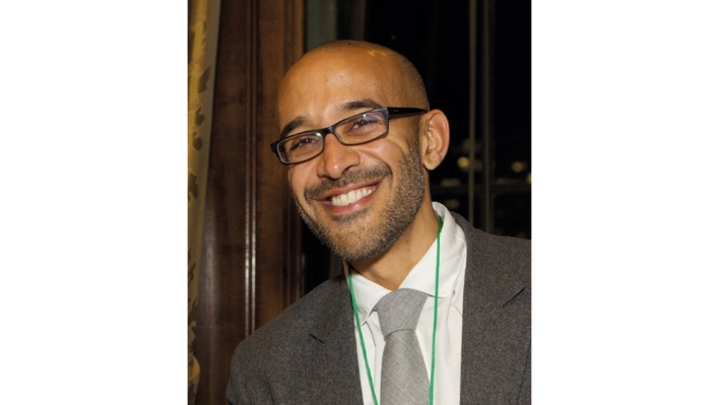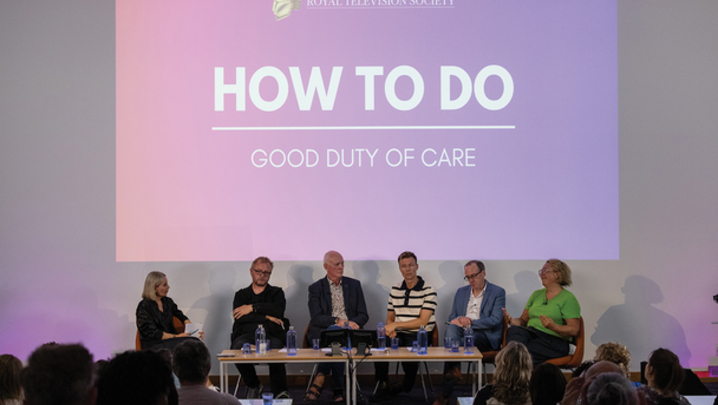The way we make TV can make people ill, behind and in front of the camera, hears Matthew Bell
The death of Steve Dymond following his appearance on The Jeremy Kyle Show last month is a sombre lesson on the power that television has over people’s lives.
The participant on the controversial daytime programme had failed a lie-detector test, having been accused of infidelity by his fiancée. Following his death, the show was initially taken off air and then axed by ITV Chief Executive Carolyn McCall.
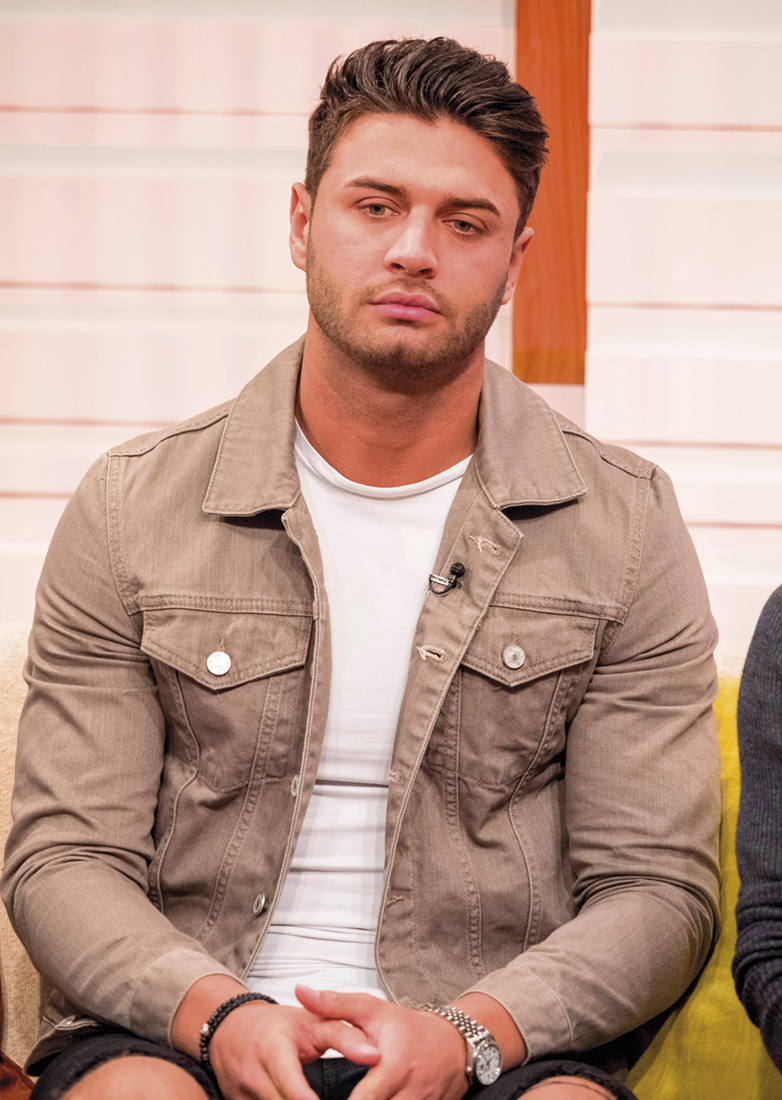
Shortly afterwards, ITV announced that it was increasing the levels of psychological support and aftercare to Love Island contestants. This followed the death of Mike Thalassitis, and the suicides last year of Sophie Gradon and her boyfriend. Thalassitis and Gradon had appeared on the ITV2 reality show, which began its new run earlier this month.
Belatedly, television has recognised its responsibility for the mental health of the people appearing in its shows. But many argue that it should be doing more – to safeguard the health of the people it employs and to portray mental ill health realistically on the screen.
Mental ill health “has been ignored as a serious issue in our industry for far too long”, argued Alex Pumfrey, CEO of the Film & Television Charity.
Pumfrey was speaking at a timely RTS early-evening event, held during Mental Health Awareness Week in May and chaired by journalist and broadcaster Caroline Frost.
“We ignore [mental ill health], we enable it and we legitimise it,” argued Pumfrey, who offered an example of the latter. A TV executive told her recently that the secret of his success was, “We take mad people and turn them into money.”
Pumfrey continued: “There’s a really pervasive idea within our sector that you have to be living life close to the edge to produce your most creative work. By allowing the trope of the mad creative genius to persist, we tacitly condone mental ill health as allowable or, even worse, necessary for creative success.”
The Film & Television Charity (formerly the Cinema & Television Benevolent Fund), said Pumfrey, hears stories every day of the “stress, strain and the toll [mental ill health] takes on bright and brilliant people”.

In 2017, location manager Michael Harm took his own life. “Shortly before he died, he left messages for friends and colleagues, saying that he hadn’t felt supported by his own industry,” she revealed. This provided the catalyst for the launch of the Film & TV Support Line, which has taken more than 2,000 calls since its launch in April 2018.
“Mental ill health defined my childhood,” revealed fellow panellist Bryan Kirkwood, the executive producer of Channel 4’s drama for young adults, Hollyoaks. “My mum took her own life when I was seven and I later lost my dad to addiction,” he said. “More than mental ill health, it was the silence that crippled us. No one ever spoke about it.
“Fast forward to the job I’m doing on Hollyoaks and I take very seriously the responsibility to help people start a really difficult conversation.… There’s an epidemic of ill health that’s happening to young people.
“It’s really important that everyone can grow up seeing themselves on the telly. I’m proud that Hollyoaks is getting there in giving our audience themselves reflected back.”
The long-running series, which is made by Liverpool indie Lime Pictures, has been widely praised for its portrayal of mental ill health. Storylines have addressed depression and bulimia and, earlier this year, self-harm, which culminated in the death of the character Lily McQueen from sepsis.
“We took the bold decision,” said Kirkwood, “for Lily to lose her life as a result of her struggle. We’ve shown some triumphant mental health stories [in the past]… but we thought it was important to show that sometimes people lose that battle.
“There’s no vampiric, romantic quality in out storytelling. We’re not suggesting to any vulnerable teenagers that this is the way to get your mum’s or boyfriend’s attention. We work closely with [mental health charity] Mind.”
And Kirkwood said those episodes in which the soap addresses mental ill health are the most popular: “When Hollyoaks goes super-serious, that’s when more people watch and we have more viewer interaction.”
Julia Lamb, from Mind’s media advisory service, advises soap writers on their storylines and character development. For Coronation Street, Mind “provided a case study who could talk about her own experience of psychosis to the production team and the actor Ali King” to ensure that the deteriorating mental health of her character, Carla Connor, was accurately portrayed.
“She’d had a trauma in her life and psychosis had come out of the blue for her… and she was a woman of a similar age as the character and we felt they could relate well to each other,” said Lamb.

Jessica Fox, who has played Nancy Osborne in Hollyoaks for 14 years, discussed the stress of working on the soap. “It’s amazing but it’s crazy,” she said. “We have no time to call our own – we are on call five days a week.
“It doesn’t matter if you’re having a bad day, tired or sick, you’ve got to be there, know your lines and turn out an amazing performance. That’s a really tall order to ask a lot of young people to do.
“When you do really challenging, upsetting, hard-hitting storylines, being able to say, ‘That is work, this is me now’ is a weird psychological thing that we ask actors to do, which is why so many actors are vulnerable to mental health problems.”
The final two members of the panel assembled for the RTS event – Richard Bentley, the creative director of Postcard Productions, and Anna Williamson, who has worked in front of and behind the camera – have both experienced mental ill health.

Bentley has obsessive-compulsive disorder, which creates “a huge amount of anxiety that lives just under the surface. I covered it up with odd quirks.” Working as an assistant producer more than a decade ago, he became ill. “One day I woke up and my funny little ticks had changed. My intrusive thoughts that I could manage and compulsions that I experienced had flipped and multiplied. It [had reached] a crisis point.
“I was really unwell and I didn’t take a minute off work. No one asked if I was all right and I think it would have been very obvious from my behaviour that I wasn’t very well.
“My boss said, ‘Something’s happened. You’ve been here for over a year and we want old Rich back – we don’t like new Rich.’ Those were his exact words.”
Yet, Bentley “still didn’t feel safe enough to be able to disclose what was going on”. He underwent therapy while working and decided to make a film about his experiences. Bentley pitched the idea to a broadcaster: “I was told that I was too well and that it was a shame I hadn’t come when I was sicker. Also, I was too middle-class looking, so it wouldn’t get the ratings. From that point, I decided that I would use the skills I had acquired in television to make films that would have a social impact.”
Bentley and Sam Forsdike set up Postcard Productions in 2010 and made The Stranger on the Bridge, the story of Jonny Benjamin’s search to find the stranger who talked him out of jumping off Waterloo Bridge, for Channel 4. Postcard, said Bentley, only “works on projects that have a good social purpose”.
More than a decade ago, Williamson, currently the life coach on E4 reality show Celebs Go Dating, had a breakdown in front of her colleagues while working as a presenter on GMTV children’s strand Toonattik.
“I was experiencing a lot of troubles in my private life and was working in an industry where we put a lot of pressure on ourselves,” she recalled. “I felt I needed to be at the top of my game.
“I’ve been managing generalised anxiety disorder, depression and panic disorders ever since – and I’ve managed it really well. I’m passionate about showing and proving to people that you can work with a mental health issue.”
She concluded: “We’re not there yet – I think it still takes a lot of guts to openly admit [a mental health condition, but] I do think we’ve made some massive headway in the past few years.”
‘Promoting wellbeing and mental health in the TV industry’ was an RTS early-evening event held at Channel 4 in London on 14 May. It was produced by Jonathan Simon, Terry Marsh and Briony Robinson.

